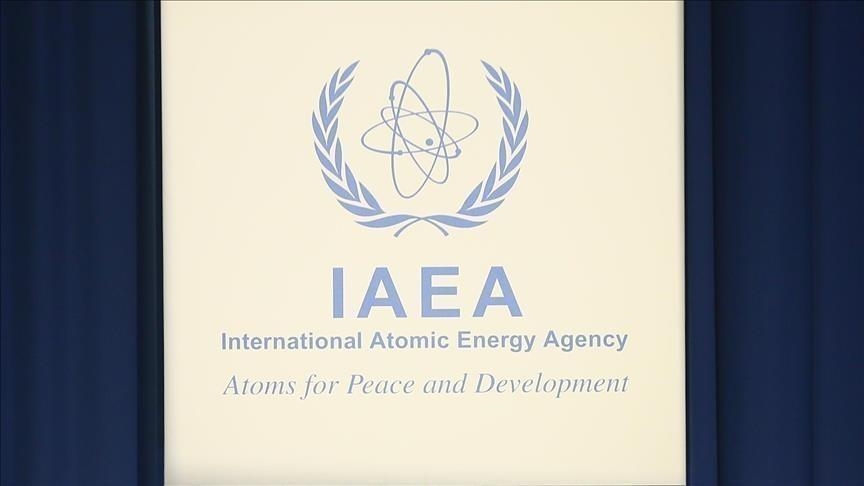The fight against Daesh/ISIS terrorism in Syria and the anniversary of the Euphrates Shield Operation
– Operation Euphrates Shield should be remembered not only for the role it played in eliminating a terrorist threat to Türkiye’s security, but also for preventing a corridor that could lead to the future fragmentation of Syria
The author is an academic based in Türkiye.
ISTANBUL
Exactly eight years ago, on Aug. 24, 2016, the Turkish Armed Forces launched an operation starting from Jarablus in northwestern Syria to neutralize the Daesh/ISIS terrorist organization. Lasting more than 200 days and completed towards the end of March 2017, Operation Euphrates Shield was the most serious blow to Daesh/ISIS in Syria so far.
Why was Operation Euphrates Shield conducted?
The situation in Syria has been so complex and rapidly changing that many people may not remember that Daesh/ISIS once controlled more than a third of the country over a decade ago. However, the Turkish public should keep the threat of Daesh/ISIS in mind not only in the context of the threat it poses in Türkiye, but also in the context of its influence in Syria and Iraq.
Daesh/ISIS was founded in April 2013 as a result of the expansion of al-Qaeda-based organizations established in Iraq after the US invasion and the transformation of these groups with the impact of the Syrian civil war. Although its roots go back many years, the organization, which grew with new leadership and militants especially from outside the region, attracted the attention of the world with the declaration of a so-called caliphate in June 2014. Many states recognized Daesh/ISIS as a terrorist organization after this event. However, Türkiye included Daesh/ISIS in its list of terrorist organizations on September 30, 2013. With this decision, Türkiye became one of the first three states to officially list Daesh/ISIS as a terrorist organization. As a matter of fact, this organization carried out terrorist acts in Türkiye before many Western countries.
Daesh/ISIS carried out its first attack within the borders of the Republic of Türkiye on March 20, 2014. We know that it has carried out 21 attacks since then. In these attacks, 309 Turkish citizens, including 15 security personnel, were martyred and 1167 Turkish citizens, including 55 security personnel, were injured. However, the terrorist organization’s threats against Türkiye were not limited to Türkiye. The terrorist organization has carried out numerous attacks in Iraq and Syria, causing many of our security forces to be martyred and wounded. Therefore, the first objective of Operation Euphrates Shield was to eliminate Daesh/ISIS terrorist organization’s terrorist attacks against Türkiye and to completely remove this organization from the Turkish border. However, it would not be correct to say that this was the only objective of the operation.
Daesh/ISIS was not only a terrorist organization in Syria but also a useful tool for actors who wanted the country to disintegrate. The PKK/PYD, another terrorist organization in Syria, was aiming to create a terror corridor in the south of Türkiye and to disrupt the territorial integrity of Syria in the long term by capturing Daesh/ISIS-held territories one by one. By mid-2016, the PKK/PYD was mobilizing from Afrin on one side and Ayn al-Arab on the other side, capturing Daesh/ISIS-held areas without major clashes. In such an environment, Operation Euphrates Shield was planned to drive a wedge between the PKK/YPG terrorists advancing in two columns from Afrin and Manbij. As a matter of fact, when Operation Euphrates Shield was completed, not only a major blow was dealt to Daesh/ISIS, but also the PKK/PYD’s goal of creating a corridor in northern Syria was ended.
Countering Daesh/ISIS after Operation Euphrates Shield
Operation Euphrates Shield, which resulted in the clearance of an area of 2,000 square kilometers (over 770 square miles) from al-Bab to Afrin with the neutralization of more than 2,600 Daesh/ISIS militants, was a turning point in many respects. First of all, Daesh/ISIS lost many experienced militants, especially during the clashes in al-Bab. Moreover, when the Turkish Armed Forces took control of al-Bab, one of the critical centers in Syria from which Daesh/ISIS derived income, this meant a significant economic loss for the organization. Finally, the loss of Dabiq and its surroundings, which are of great importance for the organization’s ideology and propaganda, dealt a blow to Daesh/ISIS’s capacity to produce discourse. However, Türkiye’s fight against Daesh/ISIS in Syria did not end with Operation Euphrates Shield.
The Daesh/ISIS terrorist organization has not forgotten the blow it received from Türkiye’s Operation Euphrates Shield and continues its attempts to launch attacks inside Türkiye. The fact that Turkish security forces have prevented more than 80 terrorist attacks by Daesh/ISIS and its affiliated organizations in the last eight years is an important indicator of the threat to Türkiye that the group poses. More than 20,000 Daesh/ISIS suspects have been detained in more than 8,000 operations in Türkiye since the start of Operation Euphrates Shield in 2016 and that the organization’s so-called ministers, commanders, action officers, and logisticians have been arrested. These points are important to understand the level of the threat against Türkiye. However, we should also remember that Ankara’s fight against Daesh/ISIS is not limited to Türkiye’s borders.
The operation carried out against Daesh/ISIS members in the Euphrates Shield zone has resulted in many cells of the organization breaking down and the capture of militants seeking to carry out attacks both in Syria and Türkiye. Moreover, Abu Hussein al-Qurayshi, who was declared the alleged fourth leader of the organization, was neutralized on April 29, 2023, in an operation carried out by Turkish security forces in Syria. In the end, Türkiye again played one of the most active roles in the fight against the militants’ efforts to expand to other regions and the international arena after being trapped in the desert regions of Syria.
As a member of the International Coalition to Combat Daesh/ISIS (ICC) and co-chair of the Working Group on Foreign Terrorist Fighters within the ICC, Türkiye has been at the forefront of activities against militants traveling from Syria to other parts of the world.
Operation Euphrates Shield should be remembered not only for its role in eliminating a terrorist threat to Türkiye’s security, but also for preventing a corridor that could lead to the future fragmentation of Syria. It was not only a precursor for the operations that followed but also for the profound effect it had in weakening Daesh/ISIS both locally and globally.
*Opinions expressed in this article are the author’s own and do not necessarily reflect the editorial policy of Anadolu
Anadolu Agency website contains only a portion of the news stories offered to subscribers in the AA News Broadcasting System (HAS), and in summarized form. Please contact us for subscription options.




